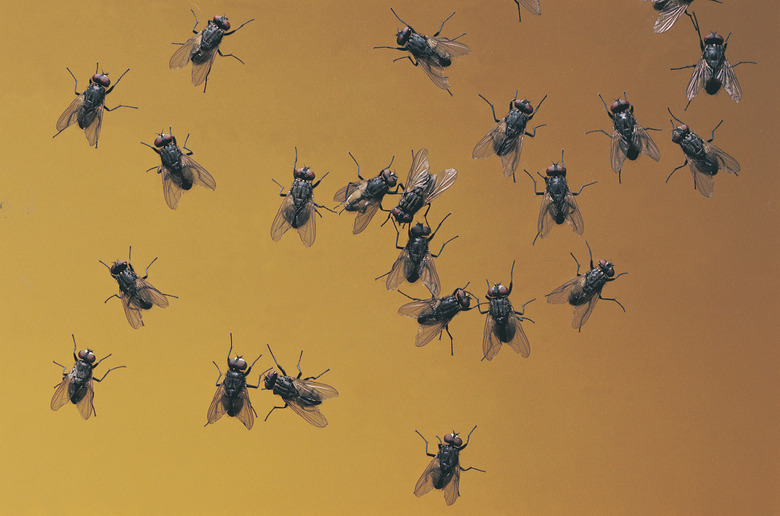Examples Of Overproduction In A Species
"Survival of the fittest" takes rather a morbid turn when you consider the idea of overproduction of offspring. Overproduction of offspring is the idea that species produce far more offspring than an environment can support because most of the juveniles will not make it to adulthood. This allows only the fittest to survive and reproduce.
Humans also overproduce and, in recent centuries, advances in medicine, public safety, and food production has allowed most babies to survive and reproduce, creating a problem nature hasn't provided a solution for.
Overproduction Definition
Overproduction Definition
You might read the word "overproduction" and immediately think of industrial or manufacturing definitions of creating products. Overproduction biology definitions, thought, are specific to offspring.
Overproduction in biology is when species produce a larger number of offspring that can physically be supported by the parents or ecosystem that they're in. This ensures that the proper number of that species' offspring survive to adulthood since the majority of offspring die before they reach maturity.
Overproduction of Offspring Benefits
Overproduction of Offspring Benefits
Because it produces so many benefits for the species that engage in it, overproduction has earned a tried-and-true place in evolution. Not only does it ensure that at least some of the offspring make it to adulthood, but it also allows species to engage in natural variation. If you look at populations of sparrows, beetles, or even humans, you can see differences in appearance and character.
The huge number of individuals in any population ensures that even though many of them won't survive, there are still high enough population numbers and genetic diversity to ensure whole-species survival should a crises occur.
Natural Overproduction
Natural Overproduction
In the wild, almost all species overproduce. You can see this in the difference between how many acorns an oak tree puts out each year — thousands — versus how many make it to full-sized adults (very few). You can also see it in how many eggs a salmon lays — 28,000,000 — when spawning.
Even elephants, who have a longer gestation period than humans, would, in 750 years, produce 19,000,000 descendants per breeding female if all their children survived to adulthood. Since they do not, this excess makes sense.
Human Overproduction
Human Overproduction
Human overproduction is taking a different form that than predicted by Charles Darwin and other evolutionary biologists as the natural course of a species' reproduction should run. Humans are capable of largely overcoming most setbacks with which other animals in nature must contend, such as predation or lack of food sources. Even considering that much of the world is without enough food, humanity as a whole is able to continue expanding.
This has led to both overproduction and overpopulation, which produces worry among scientists that, at a certain point, the planet will no longer be able to support the human population. This can lead to environmental and climate collapse and, eventually, a potential mass extinction event.
Manmade Overproduction
Manmade Overproduction
Slightly related to human overproduction, manmade overproduction occurs in species that grow beyond what their natural capacity would be because they are encouraged by humans to do so. Examples of this are fish farming and cattle farming, where more animals than the environment can technically support are bred.
When this overproduction of species isn't limited by nature, the results are often negative. Fish farming, for example, results in depopulating ocean waters to get the raw material to make fish meal. Raising cattle can result in methane gas production, deforestation and erosion.
Overproduction of crops can also deplete soils of their natural nutrients and components, which can also lead to habitat and ecological destruction. This is especially true with the concept of monocropping (growing mass amounts of one type of plant in a single area over and over).
Cite This Article
MLA
Moore, Sarah. "Examples Of Overproduction In A Species" sciencing.com, https://www.sciencing.com/examples-overproduction-species-15252/. 31 July 2019.
APA
Moore, Sarah. (2019, July 31). Examples Of Overproduction In A Species. sciencing.com. Retrieved from https://www.sciencing.com/examples-overproduction-species-15252/
Chicago
Moore, Sarah. Examples Of Overproduction In A Species last modified August 30, 2022. https://www.sciencing.com/examples-overproduction-species-15252/
